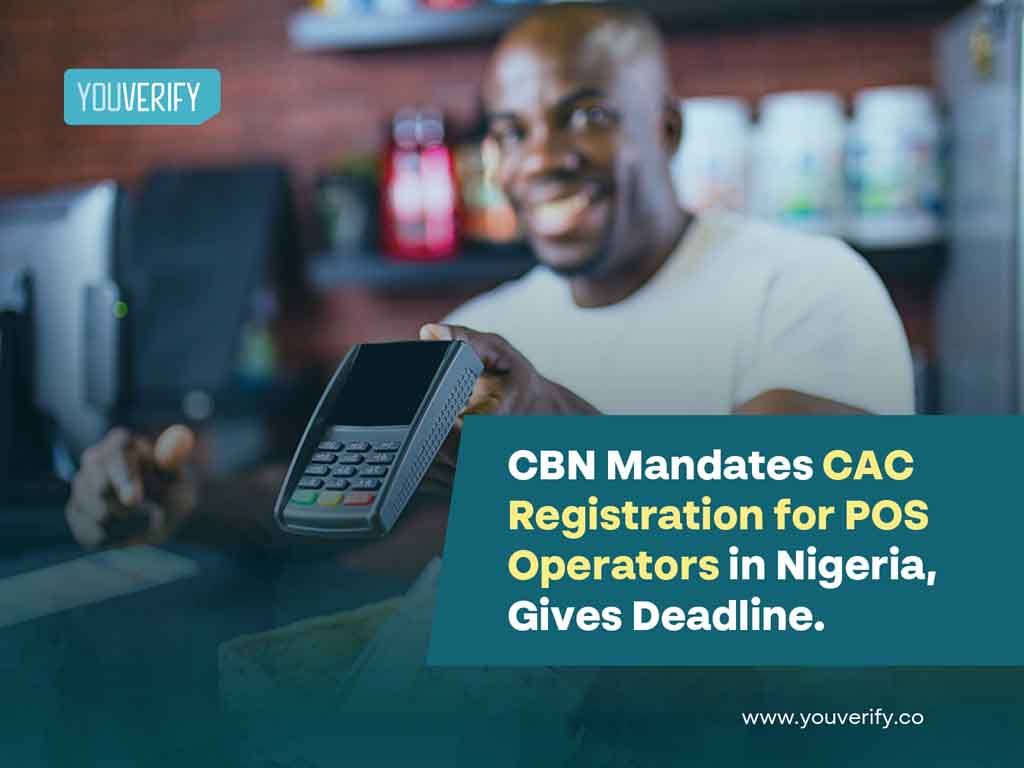In a decisive move to enhance transparency and accountability within the financial sector, the Central Bank of Nigeria (CBN) has mandated all Point of Sale (POS) operators to register with the Corporate Affairs Commission (CAC). The ultimatum, set for July 7, 2024, marks a significant shift in regulatory expectations and aims to standardize operations across the board.
This directive, which emerged from a pivotal meeting between the CAC's Registrar-General, Hussaini Magaji, and fintech stakeholders, extends to all financial institutions with POS services. This step is seen not as a targeted measure but as an alignment with existing legal frameworks and CBN's guidelines on agent banking, ensuring that all parties adhere to the Companies and Allied Matters Act, CAMA 2020.
See Also: How to register a business name in Nigeria with CAC
Implications for Financial Institutions and POS Merchants
For POS merchants, this means they must formalize their operations by registering as business entities with the Corporate Affairs Commission (CAC). This measure is very important for regulators to know who runs what business and in what part of the country.
The stakes are even higher for financial institutions, as they are required to re-evaluate and re-onboard their POS networks, potentially severing ties with non-compliant entities post-deadline. This measure may appear stringent, but it is pivotal in the fight against financial fraud caused by fraudulent activities from POS terminals.
Read Also: How to Check BVN number online
How Should Financial Institutions Onboard New POS Merchants?
To ensure compliance with new regulations and protect their institutions from risky operators, financial institutions must take the following steps to verify potential POS operators and protect their businesses:
- Registration Requirement: Every POS operator must register their business with the CAC.
- Verification Process: Using a trusted business verification tool, financial institutions need to verify that each merchant is registered and compliant with the CAC.
- Integration of AML Checks: As part of the onboarding process, POS merchants must undergo Anti-Money Laundering checks to ensure their operations and/or the Ultimate Beneficial Owners (UBOs) do not pose a risk of financial crimes.
- Compliance Monitoring: Continuous monitoring to ensure ongoing compliance with the CBN guidelines and CAMA 2020.
Read Also: How to check if a business is registered in Nigeria
Streamlining Compliance through Technological Solutions
To facilitate a smooth transition and ensure compliance, financial institutions must re-onboard POS operators on their platform and verify the legitimacy of the CAC certificates presented.
To enjoy a smooth compliance and onboarding operation, businesses can leverage Youverify’s business verification solutions, which provide instant access to government business records, ensuring that only registered and compliant merchants are onboarded. This service is essential for maintaining seamless operations and aligning with the new regulatory framework.
Conclusion: A Forward-Thinking Approach to Financial Regulation
The CBN's directive is a proactive measure to foster a more organized and reliable financial environment. By setting clear standards and utilizing technology for compliance, the pathway to a more robust financial sector is distinctly mapped out.
Youverify provides a comprehensive business verification and compliance product that helps financial institutions to verify, onboard, and perform continuous compliance checks on both their individual and business customers.
Click here to create an account in three minutes and start verifying your customers in seconds!
